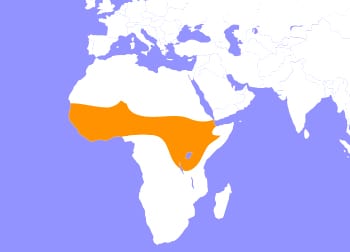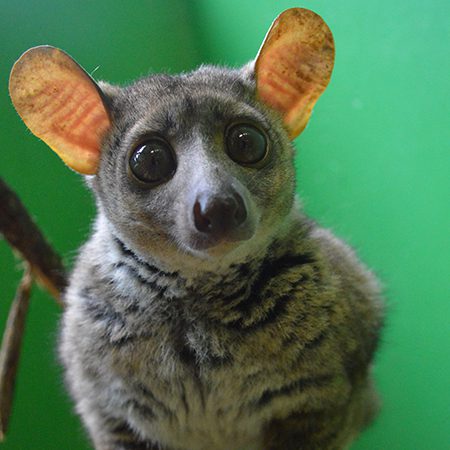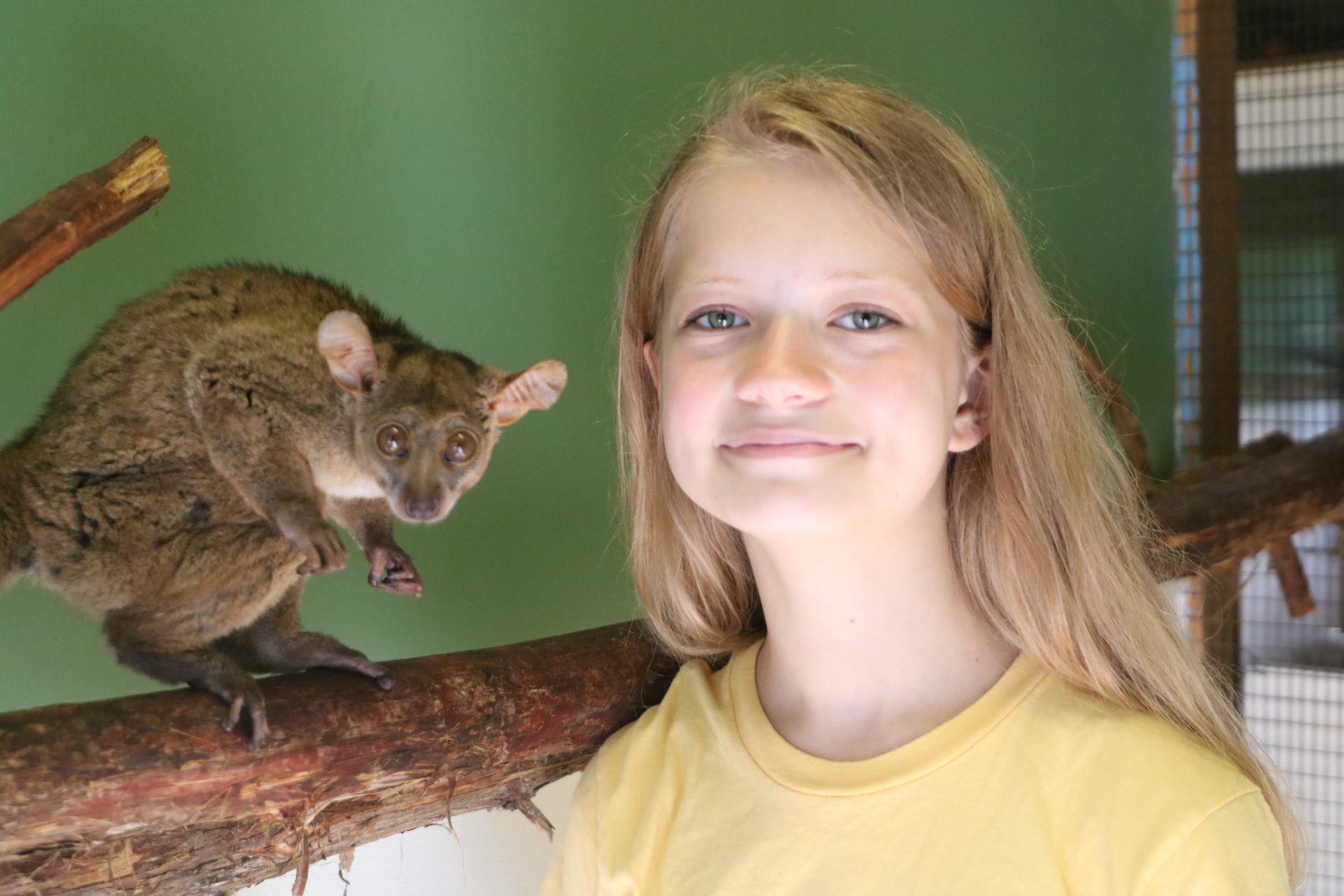Galago Bush Baby
Otolemur crassicaudatus
Bush babies are called nagapies (meaning “little night monkeys”) in Afrikaans. They are small nocturnal primates native to continental Africa. Galagos have large eyes, giving them extremely good night vision. Strong hind limbs for jumping and maneuvering across canopies, acute hearing, and long nails for balance are other notable features of the Galgos. Their long nails also include a grooming claw, which is the second toe on the hind foot. Their ears are bat-like, allowing them to track insects in the dark. They’ll catch insects on the ground or snatch them out of the air. Bush babies are extremely fast and agile creatures.
The diet of a Galagos is a mixture of insects and other small animals, fruits, and tree gum. They have pectinate (comb-like) incisors called tooth combs, these help them to chew fruit. When galagos are born they have their eyes half-closed and are initially unable to move independently. Like most primates, newborns cling to their mother for constant contact. Females will maintain a territory, but share it with their offspring. Young males will leave their mothers’ territories after puberty, while the females will remain, forming social groups of closely related females and their young.
Social structure of the galago has components of both social and solitary life. This can be seen in their natural play, they swing from branches, climb high, and throw things! Social play includes play fights, play grooming, and following-play. Following play involves two galagos jumping sporadically and chasing each other through the trees. Older galagos in social groups tend to rest alone.
Say Hello To Cub Creek's Bush Baby: Clover

Bush Babies are found throughout the African woodlands and bushlands in the sub-saharan regions.
HABITAT -They are arboreal inhabiting the trees and woodlands of sub-saharan regions of Africa.
DIET -They eat a mixture of insects and other small animals, fruits, and tree gum.
FUN FACT -These creatures mark their territory by urinating on their hands and leaping from tree to tree.
SOCIAL BEHAVIOR -They live in social groups with dominant females, some older will live in solitary.
ACTIVITY -They are nocturnal, active during the evening to hunt prey.
PREDATORS -Predators include small cats, snakes, and owls.
SIZE -The average length of a bushbaby is 5 in, weighing between 3 to 10 oz.
RELATIVES -Studies have identified as many as 20 species of bushbaby, such as the Dusky, Zanzibar, and Grant’s bushbaby.
CONSERVATION -The Galago Bush Baby is considered Least Concern on the IUCN Red List.
Cub Creek Animal Care Information
Housing - Our Galago Bushbaby lives in a specialized enclosure. This enclosure is a large room with an abundance of natural branches to simulate an intuitive environment. The enclosure is bedded with shavings, and has areas for them to access clean water. Our galago has a few favorite pouches hanging from the trees, they sleep in these during the day. At nightime, when they’re active you can see them gleefully jumping around trees and playing with toys hanging in their enclosure.
Diet - A favorite in our galagos diet is pinky mice. Pinky mice are a less developed, small frozen mice that are thawed and fed to animals. He really loves to eat his pinkies, we supplement this high protein food with mixed vegetables. Occasionally we’ll switch up their diet for other protein rich foods such as eggs. They also enjoy eating fresh and dried fruits as treats!
Enrichment - Toys are made for our bushbaby, that usually hang from the trees, these help to keep its life enriched and full of play. These can be made from cardboard, or other plastic materials. They can be seen playing with them most actively at night time! Our galago bush baby has had plenty of social interaction with humans, campers love to adopt them during the summer time.


